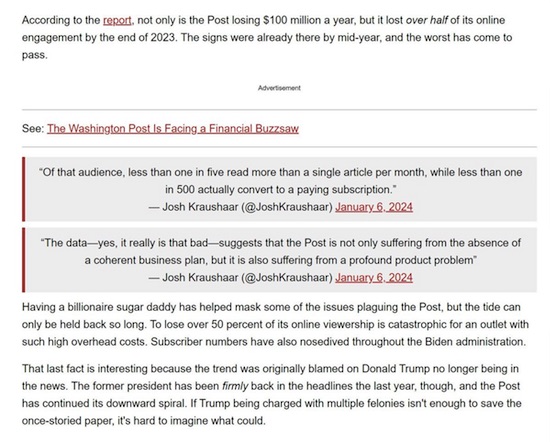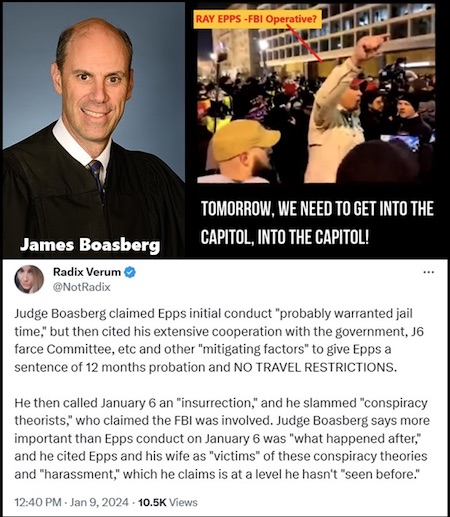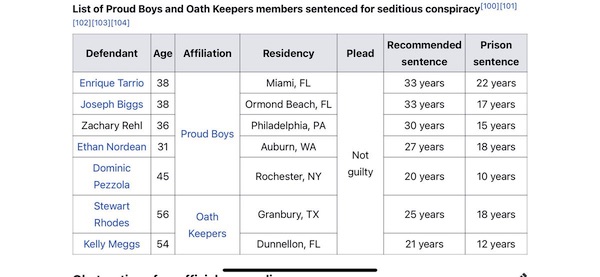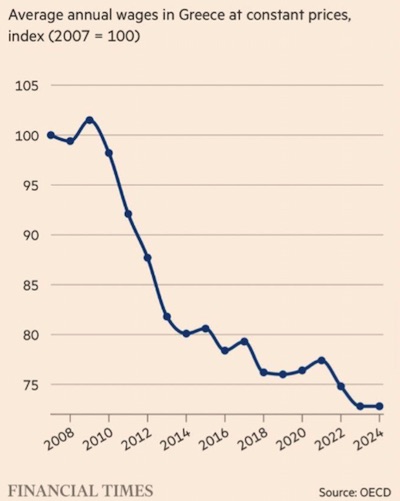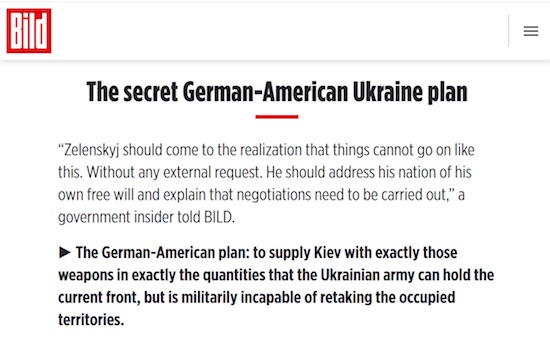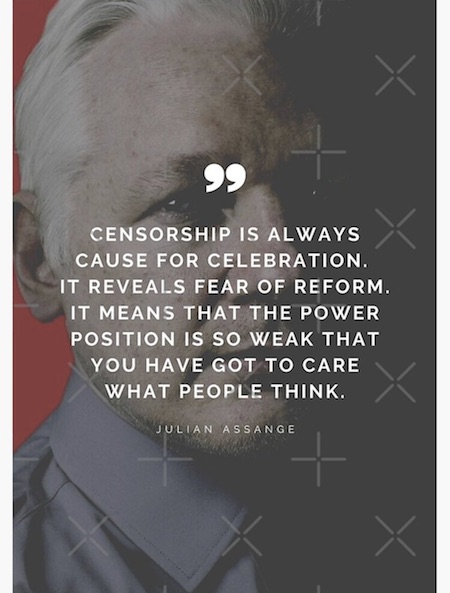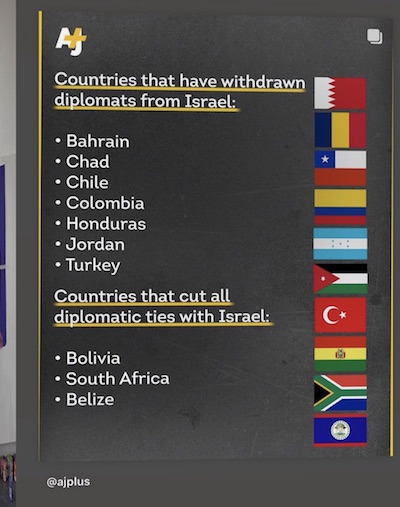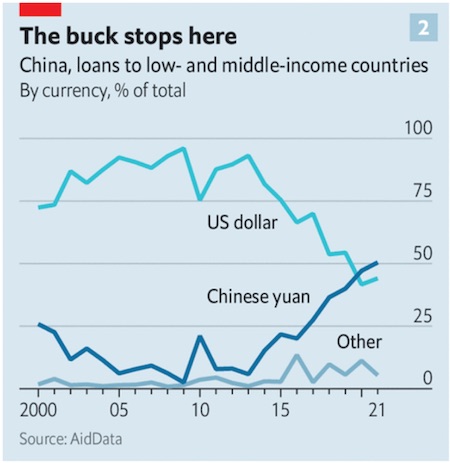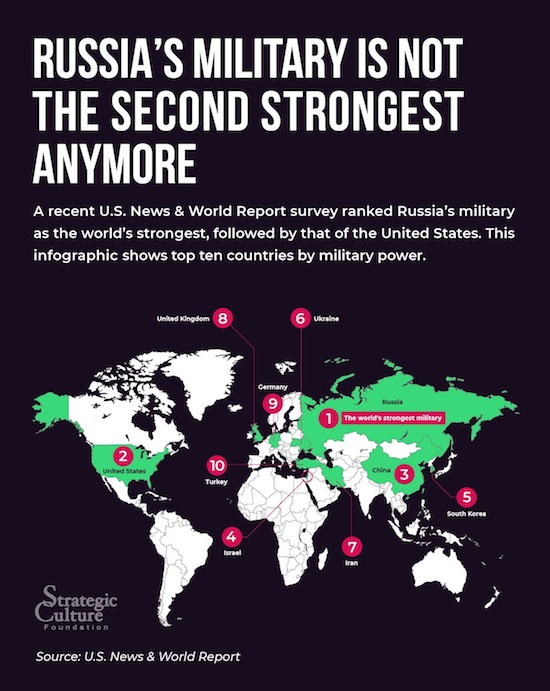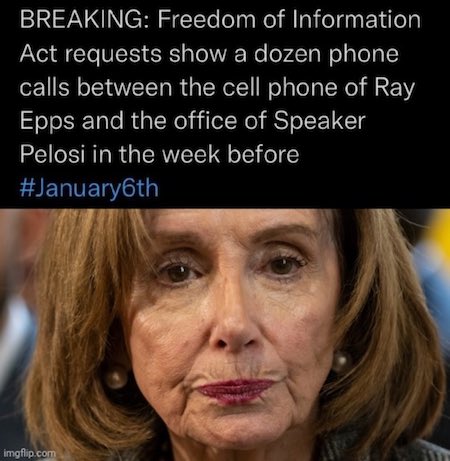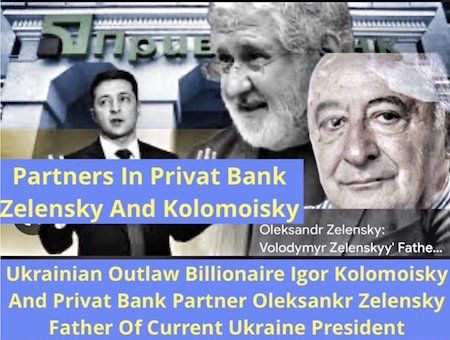
Grete Stern Sueño No. 1: Artículos eléctricos para el hogar 1949


Scott McNealy’s famous ‘What were you thinking?’ rant to investors for bidding Sun Microsystems’ stock price up to 10x sales during the DotCom bubble Keep in mind that $nvda is now trading at over 40x sales…

Every American should watch this video of Letitia James, in her own words.
This is third-world stuff.
Our country is done if these are the kinds of people in charge of making prosecutorial decisions.pic.twitter.com/bfPSlsRGVg
— Vivek Ramaswamy (@VivekGRamaswamy) February 22, 2024
December, 2018. NBC breaks the "news" that incoming Attorney General Letitia James, who hadn't even been sworn in yet, was planning to investigate every part of Trump and his family's lives.
It's surreal watching this because this isn't supposed to happen in America.
Even… pic.twitter.com/mVCKL3QYLM
— MAZE (@mazemoore) February 22, 2024

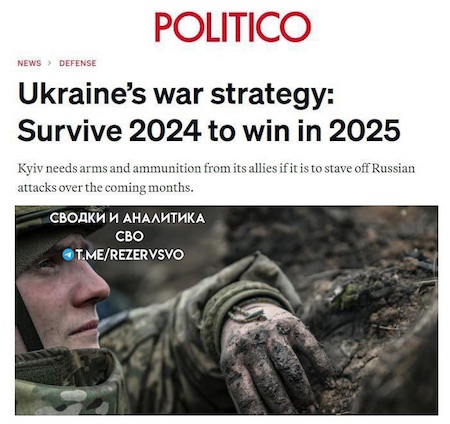

Informant
HUNTER BIDEN: Jesse Watters (@JesseBWatters) nails it, says, "The same prosecutor who got busted for cooking up Hunter’s sweetheart plea deal arrested the FBI informant who reported that Joe and Hunter Biden took bribes from Ukraine. Then that prosecutor accused the informant of… pic.twitter.com/TvjCVx0KDq
— Simon Ateba (@simonateba) February 23, 2024

Watters AI
Google’s flagship Gemini large language model paused its image generation of people after it was criticized for poor handling of race. This time, the affront was against Caucasians.
When asked to generate images of Vikings and German World War II troops – historically held by… pic.twitter.com/kXI4lgguMk— Camus (@newstart_2024) February 23, 2024

Walsh
Worth watching
pic.twitter.com/CtDis8nPCK— Elon Musk (@elonmusk) February 23, 2024


“Mr. Trump volunteered to play role of exorcist in this grand psychodrama. Whatever else you make of him, he has shown a lot of fortitude..”
• The Dark and the Light (Kunstler)
The poison killing our country is pervasive untruth. Every institution we have relied on to run the public interest has become a factory churning out lies, evasions, and misdirection — not unlike the way mRNA “vaccines” turned the cells in your bodies into tiny generators of spike proteins destroying your organs. Likewise, half the population, apparently, thinks this is a good thing, that we need more lawfare — the perversion of law by attorney perverts — and that we need ever more lies, evasions, and misdirection (just as the degenerates who run Harvard declare their student body needs more mRNA boosters to remain in school). Since the doctors have all failed — miserably and dishonorably — America needs an exorcism. The poisons in our system are actual persons carrying out their programmed assignments, just as the spike proteins in the bodies of millions act as individual agents of destruction in your body.
What possible invocation can drive out the likes of Mayorkas, Christopher Wray, Avril Haynes, William Burns, Merrick Garland, Lisa Monaco, Marc Elias, Norm Eisen, Jack Smith, Jake Sullivan, Marc Zuckerberg, Mandy Cohen, Rachel Maddow, Daniel Sachs Goldman, Jamie Raskin, Mitch McConnell, Charles “Chuck” Schumer, “Joe Biden” (the remnant of a person, after all), and a thousand others in high places behaving in a way indistinguishable from demons? What explains their devotion to untruth? What motivates them? Can it possibly be the mere perqs and comforts of their positions? Are they answering a call? And who is issuing that call? Or are they just trapped by their many years of lying continually, fearful of getting cast into prison? Are you asking yourselves: what will satisfy these maniacs? Anything short of the ruin of our country? What will their coveted power be worth in a ruined country? Mr. Trump volunteered to play role of exorcist in this grand psychodrama. Whatever else you make of him, he has shown a lot of fortitude.
Eight years ago, when he came on the scene, he appeared to not know that his opponents were actually demons seeking to wreck the country; rather just low persons sunk in the most common venial corruption, and others mere zealots steeped in futile utopian fantasies of perfecting the flawed human condition. He learned eventually the that the situation was more dire than he ever imagined. His opponents came after him hard from the get-go and keep coming at him. Russia is the knout they use in the attempt to flay him alive. “Russia Russia Russia” has been one long, elaborate lie. They’re going at it again, pretending that Mr. Trump seeks Russian help interfering in the fall election, despite the plain fact that all previous invocations of “Russia Russia Russia” were revealed to be untrue, and maliciously so — and that all the actual election interference originated with the gang shouting “Russia Russia Russia.” It looks like more than half the country is refusing to fall for it this time. Thus, the resort to lawfare, the five cases (so far) designed to bankrupt Mr. Trump and gain a felony conviction for objecting to the election shenanigans of 2020.

Something tells me we’re not talking about the smartest folk here..
• New Cell Phone Records Prove DA Willis Affair (Techno Fog)
The lawyers for President Trump have Special Prosecutor Nathan Wade’s cell phone records. And it’s bad for Fulton County District Attorney Fani Willis. The official story from the Fulton County DA and her former lover Nathan Wade, made through sworn filings and sworn testimony, was that their “personal relationship” started in 2022. In a February 2, 2022 filing, DA Willis submitted Wade’s affidavit to the Court which stated: “In 2022, District Attorney Willis and I developed a personal relationship.” DA Willis and Wade both testified that the relationship started sometime in early 2022. But Wade’s cell phone records disprove their official story. In a filing this morning from President Trump’s attorneys, records indicate that the “relationship” between DA Willis and Wade was romantic well-before Wade’s November 1, 2021 appointment by Willis as Special Prosecutor.

Trump’s attorneys were able to obtain, by subpoena to AT&T, Wade’s cell phone records from 1/1/2021 through 11/30/2021. Wade’s location data was analyzed by an investigator hired by the attorneys – an analytical tool which generated geolocation data that pinpointed Wade’s presence at DA Willis’s South Fulton Condo during that time period. Here are the highlights:
• Wade and Willis exchanged “over 2000 voice calls and just under 12,000 texts messages” from January 1, 2021 through November 30, 2021.
• Geolocation data indicates Wade was at DA Willis’s condo “at least 35 occasions”. The data revealed he was “stationary” at the condo “and not in transit.”
• Wade’s visits to DA Willis’s condo were corroborated by texts and phone calls. According to the report: On November 29, 2021, “following a call from Ms. Willis at 11:32 PM, while the call continued, [Wade’s] phone left the East Cobb area just after midnight and arrived within the geofence located on the Dogwood address [the condo] at 12:43 AM on November 30, 2021. The phone remained there until 4:55 AM.”
• On September 11, 2021, Wade arrived at the condo address at approximately 10:45 PM. He left the address at 3:28 AM and arrived at his Marietta residence at 4:05 AM. He then texted DA Willis at 4:20 AM.
It’s important to note that Trump’s investigator is under a serious time constraint, due to the nature of the proceedings before Judge Scott McAfee, and wasn’t able to analyze all of the Wade/Willis data, which he described as voluminous. The two visits listed above – those are just a small fraction of the 35+ trips that Wade made to DA Willis’s condo. If his review continues, then more revelations will follow. The extensive communications between DA Willis and Wade – the thousands of calls and tens of thousands of texts – indicate something more than what they described as a friendship. And combined with the late-night visits, with Wade appearing at her apartment for a few hours before heading home, this is definitive proof that their romantic relationship started long before what they told the Judge.
It looks like Fani Willis and Nathan Wade are caught red handed.
Charge them with perjury! pic.twitter.com/9EtCfxuLt8
— Brigitte Gabriel (@ACTBrigitte) February 23, 2024
Beck Fani
There are signs of perjury all over the testimony of Fani Willis and her special prosecutor "friend." In Georgia, the penalty for JUST ONE case of perjury is a fine of up to $1000 and/or prison for 1-10 years. So, let's see if there's still justice in America. pic.twitter.com/YOV6XgSeG5
— Glenn Beck (@glennbeck) February 23, 2024
Watters Fani
Just as Primetime suspected, Fani Willis and Lover Boy were hiding more than they led us to believe. And it looks like Lover Boy’s, “You up?” texts might just be what sinks them. pic.twitter.com/BF0iQkr5Lg
— Jesse Watters (@JesseBWatters) February 24, 2024

I bet this is about finding out what she has on Biden and Hunter. Then they’ll return (most of) her notes.
• CBS Causes Uproar After Seizing the Notes of Investigative Reporter (Turley)
There is trouble brewing at Black Rock, the headquarters of CBS, after the firing of Catherine Herridge, an acclaimed investigative reporter. Many of us were shocked after Herridge was included in layoffs this month, but those concerns have increased after CBS officials took the unusual step of seizing her files, computers and records, including information on privileged sources. The position of CBS has alarmed many, including the union, as an attack on free press principles by one of the nation’s most esteemed press organizations. I have spoken confidentially with current and former CBS employees who have stated that they could not recall the company ever taking such a step before. One former CBS journalist said that many employees “are confused why [Herridge] was laid off, as one of the correspondents who broke news regularly and did a lot of original reporting.”
That has led to concerns about the source of the pressure. He added that he had never seen a seizure of records from a departing journalist, and that the move had sent a “chilling signal” in the ranks of CBS. A former CBS manager, who also spoke on condition of anonymity, said that he had “never heard of anything like this.” He attested to the fact that, in past departures, journalists took all of their files and office contents. Indeed, the company would box up everything from cups to post-its for departing reporters. He said the holding of the material was “outrageous” and clearly endangered confidential sources. [..] A source within the the union, SAG-AFTRA, confirmed that it has raised this controversy with CBS and remains extremely concerned about the effect of this action on journalistic practices and source confidentiality. The union believes this is “very unusual” and goes far beyond this individual case. “It is a matter of principle,” a union spokesperson added. “It is a matter of serious concern. We are considering all of our options.”
For full disclosure, I was under contract twice with CBS as a legal analyst. I cherished my time at the network. I have also known Herridge for years in both legal and journalistic capacities. CBS is one of the world’s premier news organizations, with a legendary history that includes figures from Murrow to Walter Cronkite to Roger Mudd. That is why the hiring of Herridge was so welcomed by many of us. The network was at risk of becoming part of the journalistic herd, an echo-chamber for Democratic and liberal narratives. It had been mired in third place for ages, and it was moving in the wrong direction by alienating half of the country. Herridge had been a celebrated investigative reporter at Fox News. An old-school investigative journalist, she is viewed as a hard-driving, middle-of-the-road reporter cut from the same cloth as the network’s legendary figures.
The timing of Herridge’s termination immediately raised suspicions in Washington. She was pursuing stories that were unwelcomed by the Biden White House and many Democratic powerhouses, including the Hur report on Joe Biden’s diminished mental capacity, the Biden corruption scandal and the Hunter Biden laptop. She continued to pursue these stories despite reports of pushback from CBS executives, including CBS News President Ingrid Ciprian-Matthews. Given the other layoffs and declining revenues, the inclusion of Herridge was defended by the network as a painful but necessary measure. But then something strange happened. The network grabbed Herridge’s notes and files and informed her that it would decide what, if anything, would be turned over to her. The files likely contain confidential material from both her stints at Fox and CBS. Those records, it suggests, are presumptively the property of CBS News.


Deliberate escalation.
“..the F-16 is capable of delivering B61 gravity bombs. “So, if one of those planes takes off from a NATO nation – what would that be? An attack on Russia. I shall not describe what could happen next..”
• NATO Will Allow Ukraine To Attack Inside Russia With F-16s – Stoltenberg (RT)
Once Ukraine receives F-16 fighter jets it will be free to use them against military targets inside Russia, NATO Secretary General Jens Stoltenberg has told American state-run media. Stoltenberg was speaking to RFE/RL for an interview which is scheduled to air on Friday. According to snippets released in advance, the NATO head has argued that Ukraine has the right to self-defense against Russian “aggression,” which would include “striking legitimate Russian military targets outside Ukraine.” As to when the government in Kiev might actually receive the promised jets, Stoltenberg would not say. Each NATO member that has pledged to deliver them has different policies and will decide themselves, he explained.
While some of Ukraine’s backers want the jets in action as soon as possible, they will have a stronger impact if the pilots are well-trained and there are enough maintenance and support crews on hand, according to Stoltenberg. “So, I think we have to listen to the military experts exactly when we will be ready to or when allies will be ready to start sending and delivering the F-16s,” he said. “The sooner the better.” Ukraine has long demanded the F-16 as a way to combat Russian air superiority. Denmark and the Netherlands have both pledged to contribute some of their jets, with President Vladimir Zelensky putting the total number at 42. The first Ukrainian pilots training in the West finished their classes in the UK in December.
The way the US-made jet is designed means it might have difficulties operating from Ukrainian runways, sparking speculation that they could be flown from Poland, Romania or the Baltic states instead. Russia has repeatedly warned such a deployment would be an escalation of the conflict and may even risk nuclear war, as the F-16 is capable of delivering B61 gravity bombs. “So, if one of those planes takes off from a NATO nation – what would that be? An attack on Russia. I shall not describe what could happen next,” Dmitry Medvedev, former Russian president and deputy head of Russia’s National Security Council, said in an interview on Thursday.

“..if Kiev loses its soldiers, it “will lose everything..”
Bit late perhaps?
• Zelensky Promises ‘New Counteroffensive’ (RT)
Ukraine is planning a new counteroffensive against Russia despite a string of recent setbacks including the failure to break through Moscow’s defenses last year and the loss of the strategic city of Avdeevka in Donbass, President Vladimir Zelensky has said. In an interview with Fox News on Thursday, Zelensky acknowledged that some Western backers have expressed impatience with Kiev and the perceived lack of progress, asking him “when we will finish the war, when will we win.” The Ukrainian leader stressed that his utmost priority is to avoid heavy casualties, and that if Kiev loses its soldiers, it “will lose everything,” even if the West provides it with the most advanced weapons. “To defend [is] the task number one and then to continue our successful story on the Black Sea” he said, adding that Russia is preparing certain “surprises” in the region, without elaborating further.
The “south is very important,” he continued, noting that Kiev’s other priority is to hold the line in Donbass, and that “of course, we will prepare a new counteroffensive, a new operation.” Zelensky cautioned that the ultimate plan depends on many factors, and declined to give a possible timeframe for a new push. Ukraine attempted a large-scale offensive early last summer but failed to make any substantial progress despite being reinforced with a massive amount of Western military hardware. Russian Defense Minister Sergey Shoigu has said Kiev suffered colossal losses in the campaign, with more than 215,000 troops lost in 2023 alone.
Last week, Russian troops took full control of the heavily fortified city of Avdeevka, which was frequently used as a launch ground for attacks on Donetsk, many of which have targeted civilians. The Russian Defense Ministry said the Ukrainian troops left their positions in a “disorderly retreat,” losing some 1,500 soldiers in the process. The New York Times, citing sources, has suggested that Moscow may have captured up to 1,000 Ukrainian soldiers during the rout. Commenting on the retreat, Zelensky called the decision to leave Avdeevka “absolutely logical,” saying its goal was to spare the lives of Ukrainian troops.

“..They would tear him to pieces and say: ‘We will be attacked instantly, Cossacks will be galloping around Paris again, and the world will simply collapse!'”
• Europe Has ‘Dim, Lackluster Technocrats’, Not Strong Leaders – Medvedev (TASS)
The current leaders of European countries are mostly “dim, lackluster technocrats” who are engaged in pursuing “Euro-Atlantic ideals” instead of resolving national problems, Russian Security Council Deputy Chairman Dmitry Medvedev said in an interview with Russian media, including TASS. “In Europe, as I have said many times, all the true leaders are gone. A generation of dim, lackluster technocrats has arrived, who endorse only Euro-Atlantic ideals. Instead of dealing with their national problems, they follow instructions from Washington,” he said. Medvedev explained that there are exceptions among European leaders, such as Hungarian Prime Minister Viktor Orban, or Slovak Prime Minister Robert Fico, “but this only confirms the rule.”
“And all the rest are people who do not have their own position,” the politician stated. In his opinion, the previous generation of European figures had the inner strength to raise objections when issues were important to their countries. But this does not mean that they took Russia’s side or abandoned any European ideals, the politician noted. “No, but they could object. To the extent that during the period when de Gaulle was the French president, France suspended its participation in the military component of NATO, and considered it the right thing to do. Can you imagine anyone even mentioning that now? They would tear him to pieces and say: ‘We will be attacked instantly, Cossacks will be galloping around Paris again, and the world will simply collapse!'” Medvedev surmised.

Because the story is too sordid.
• Why Won’t The West Admit That The Maidan Coup Was Based On A Lie? (RT)
Political scientist Ivan Katchanovski – of the University of Ottawa – revealed last year, in a paper, that the February 2014 massacre of Ukrainian protesters by sniper fire, a defining moment of the Western-backed Maidan coup, was not published by an academic journal for “political reasons.” In a lengthy Twitter thread, Katchanovski first laid out the circumstances behind the rejection of his article, and the bombshell evidence included in it. The paper was initially accepted with minor revisions after peer review, and the journal’s editor offered a glowing appraisal of his work, writing: “There is no doubt that this paper is exceptional in many ways. It offers evidence against the mainstream narrative of the regime change in Ukraine in 2014… It seems to me that the evidence the study produces in favour of its interpretation on who was behind the massacre of the protesters and the police during the ‘Euromaidan’ mass protests on February 18-20, 2014, in Ukraine, is solid. On this there is also consensus among the two reviewers.”
As the editor noted, the massacre was a “politically crucial development,” which led to the “transition of powers in the country” from the freely elected Viktor Yanukovich to the illegitimate and rabidly nationalistic administration of Aleksandr Turchinov, a former security services chief. It was endlessly cited in Western media as a symbol of the brutality of Ukraine’s government and an unprovoked attack on innocent pro-WesternMaidan protesters, who allegedly sought nothing more than democracy and freedom. Rumors that the killings were a false flag intended to inflame tensions among the vast crowds filling Maidan, and provoke violence against the authorities, began circulating immediately. No serious investigation into what happened was ever conducted by the Western media, with all claims that the sniper attacks were an inside job dismissed as Kremlin “disinformation.” However, even NATO’s Atlantic Council adjunct admitted in 2020 that the massacre was unsolved and that this “cast a shadow over Ukraine.”
It may not remain unsolved for much longer though, due to an ongoing trial of policemen at the scene on the fateful day. The legal action has been unfolding for well over a year and has received no mainstream news attention at all outside Ukraine. Katchanovski drew heavily on witness testimony and video evidence that has emerged over the course of the trial in his suppressed paper. For example, 51 protesters wounded during the incident testified at the trial that they were shot by snipers from Maidan-controlled buildings, and/or witnessed snipers there. Many spoke of snipers in buildings controlled by Maidan protesters shooting at police. This is consistent with other evidence collected by Katchanovski, such as 14 separate videos of snipers in protester-controlled buildings, 10 of which clearly feature far-right gunmen in the Hotel Ukraina aiming at crowds below.
In all, 300 witnesses have told much the same story. Synchronized videos show that the specific time and direction of shots fired by the police not only didn’t coincide with the killings of specific Maidan protesters, but that authorities aimed at walls, trees, lampposts, and even the ground, simply to disperse crowds. Among those targeted by apparently Maidan-aligned snipers were journalists at Germany’s ARD. They weren’t the only Western news station in town at the time – so too were Belgian reporters, who not only filmed Maidan protesters screaming towards Hotel Ukraina for snipers not to shoot them, but also participants being actively lured to the killing zone. This incendiary footage was never broadcast.

Very few people in Ukraine could call for this. But Melnik is the person who “..called German Chancellor Olaf Scholz an “offended liver sausage” and told Elon Musk to “f**k off”..”
• Kiev’s Sponsors Should Hold ‘Discreet’ Talks With Moscow – Ukraine Envoy (RT)
Kiev’s foreign backers should contact Russia behind the scenes to find out its conditions for peace with Ukraine, former Ukrainian ambassador to Germany Andrey Melnik, who now represents the country in Brazil, has said. In an interview with the German newspaper Tagesspiegel, Melnik was asked to comment on a poll which revealed that, given the failure of Ukraine’s counteroffensive last year and gains by Russian forces in recent months, 64% of Germans now believe that Kiev has lost the conflict with Moscow. The diplomat called the results of the survey “bitter” and acknowledged that “our partners have the right to say: ‘okay, we tried, we helped, but now it doesn’t work anymore.’” However, he insisted that Ukraine’s defeat would “be a threat to Germany’s security.”
According to Melnik, Berlin must now focus on what else it can do to help Kiev, including supplying “Taurus [missiles], fighter jets, more anti-aircraft defenses and ammunition.” The ambassador suggested that considering how things stand at the moment, “it would at least be wise if our allies could discreetly contact Moscow to find out whether there’s real willingness to compromise. Under what conditions and guarantees, for example, would the Russians be ready to withdraw from the occupied territories.” “It’s not about lazy compromises or restoring a false calm on the global stage, but about leaving no stone unturned,” he said, adding that “conducting exploratory talks doesn’t mean giving up one’s interests.” At the same time, Melnik claimed “the Russians have done everything they can to destroy trust.
From Ukraine’s point of view, it is impossible to forge a deal.” “Nevertheless, our partners, including in the Global South, should use their diplomacy to end the war this year,” he stressed. Melnik was removed from the post of Ukraine’s ambassador to Germany in summer 2022 after a series of scandals. Notably, he called German Chancellor Olaf Scholz an “offended liver sausage” and told Elon Musk to “f**k off” on social media. “I might’ve been able to do my job less passionately from time to time so as not to offend some people,” he acknowledged. The diplomat explained that his harsh tone was justified by the need to put pressure on the government in Berlin to provide more aid to Ukraine in the first month of the conflict with Russia.

“..with a negative effect on the US balance of trade, hence on US inflation and economic growth, all of which could increase unemployment, poverty and fiscal deficits in the United States.”
• How Russia Could Respond to West’s Potential Frozen Asset Seizure (Sp.)
A group of international law experts and practitioners from Belgium, France, Germany, Japan, the Netherlands, the UK, and the US are seeking to bolster the legal case for seizing frozen Russian Central Bank assets, Bloomberg news agency has reported. In a letter obtained by Bloomberg, the experts argue that such actions are allegedly allowed under international law, citing the ongoing Ukraine conflict as a pretext. The letter, however, did not elaborate on what legal mechanism (if any) these experts could use for possible a seizure. Shortly after the start of Russia’s special military operation, Western countries slapped comprehensive sanctions on Russia, including the freezing of about €260 billion ($280 billion) in securities and cash, with more than two-thirds of the sum immobilized in the EU.
“I do not think that it is possible on legal grounds to confiscate frozen assets of the Russian Central Bank, even though these assets are held in some Western countries such as the US, the UK, Germany or France,” Sergio Rossi, professor of macroeconomics and monetary economics at the University of Fribourg, Switzerland, told Sputnik. Touching upon potential ramifications, he suggested that speculation about the possibility of confiscating the assets on a legal basis “could induce a number of European or US stakeholders to seize these assets held in their own countries in order to give them to Ukraine, so as to reduce the expenditures of their own governments in support of Ukraine.” This may, in turn, “give rise to some reputational risks at international level, since these countries might be considered less trustworthy in managing foreign financial capital, which is thereby subject to confiscation in a not-too-distant future, particularly in view of the existing huge geopolitical tensions, notably between China and the United States, in the Middle East or in the Red Sea,” according to Rossi.
When asked what countermeasures one should expect from Moscow if the US and the EU take action in this regard, the pundit suggested that the Russian government could sell “a relevant share of its Western assets, particularly US and European bonds and equities.” Russia then “could invest this capital in a number of economic activities across the so-called ‘Global South’ countries, particularly in the BRICS+, namely, Brazil, India, China, South Africa, and some other countries whose economy is emerging in the currently multi-polar globalization,” per the expert. Similarly, he did not rule out that Russia could sell “huge amounts of US dollars across the foreign exchange market, thereby inducing a relevant depreciation of the greenback, with a negative effect on the US balance of trade, hence on US inflation and economic growth, all of which could increase unemployment, poverty and fiscal deficits in the United States.” He also indicated that others may follow the Russian move, “thereby impacting on Western economies negatively, in a period when both the US and the EU already have their own economic and social problems to address properly and for the common good,” Rossi concluded.

All that to get the NATO job.
• Dutch PM Has No Right to Sign 10-Year Ukraine Security Agreement – Musk (Sp.)
US entrepreneur Elon Musk said outgoing Dutch Prime Minister Mark Rutte does not have the legal authority to sign a security treaty with Ukraine for ten years. The Tesla and SpaceX CEO made the statement in response to a post by political commentator Eva Vlaardingerbroek on social network X regarding the Netherlands’ ten-year military assistance agreement with Ukraine. Vlaardingerbroek said “the opinion of the Dutch People” had not been asked. “Doesn’t seem like he [Rutte] has the legal authority to do this,” Musk wrote in response. The Dutch Foreign Ministry said in a statement Friday that the Netherlands would sign a security agreement with Ukraine for the next 10 years. It said the deal means the Netherlands will help Ukraine defend itself and achieve further integration into the EU and NATO.
Ukraine earlier signed similar agreements with the UK, France, Germany and Denmark. Reports also said a similar document could be signed with Italy in the near future. Russia has been conducting a special military operation in Ukraine since February 24, 2022. President Vladimir Putin has said the operation aims to “protect people subjected to genocide by the Kiev regime for eight years.” According to the president, the ultimate goal of the operation is to liberate Donbass and create conditions that guarantee Russia’s security. Russia earlier sent a note to NATO because of arms supplies to Ukraine. Russian Foreign Minister Sergey Lavrov has said any cargo that contains weapons for Ukraine will become a legitimate target for Russia.

“..In a sort of reverse Genesis, these would-be deities seek to save the earth from humanity..”
• The Elites Versus The Rest Of Us (Utter)
Far too many unelected, bureaucratic pencil-pushers in Washington and Brussels have been granted nearly complete control over those they are supposedly to serve, due to the cravenness of their elected “bosses.” These duplicitous diplomats and sanctimonious “servants” sneer self-righteously at those who they derisively say cling to their God and their guns, as they arouse themselves by marinating in their own supposed superiority. The West and its signature values of limited representative government, respect for the individual, free will, free markets, discipline, work ethic, and reasoned faith led the world out of the Dark Ages. Bizarrely and remarkably, the truth of the matter is that elites in the Western media, government, entertainment, and academia are now revolting against the same values that changed the world so much for the better. Progressive?
In America, the Biden administration is putting the kibosh on gas stoves and, now, all new liquid natural gas export approvals, ostensibly to fight climate change — but, some believe, more likely just to piss off political opponents. Mindbogglingly, various Western governments are essentially declaring war on farmers, or at least farming, again purportedly to combat global warming. So what will 8 billion people eat? The elites say, “Let them eat bugs!” Indeed, you will eat ze bugs…and be happy! The globalists at the WEF have taken it upon themselves to plan our subjugation. In a sort of reverse Genesis, these would-be deities seek to save the earth from humanity. At the 2024 Forum, the global aristocracy vowed to ramp up censorship of dissenting opinion.
If they can successfully implement broad-based censorship of those with whom they disagree, there is no hope for the rest of us to throw off our shackles. Period. That is why the American Founders wrote — and enshrined — the First Amendment to the Constitution. The elites believe they know what’s best for everyone else, and the planet at large. But in reality, they are far more concerned with what’s best for them — and their image as virtue-signaling champions of a supposedly utopian future. It is up to us to ensure that their assault on logic, morality, and sanity does not succeed — no matter the consequences.

“Yemen’s fight for “our people” in Gaza is a matter of humanistic, moral, and religious solidarity – these are foundational tenets of the rising eastern “civilizational” powers..”
• The Axis of Asymmetry Takes On The ‘Rules-Based Order’ (Pepe Escobar)
The Axis of Asymmetry is in full swing. These are the state and non-state actors employing asymmetrical moves on the global chessboard to sideline the US-led western rules-based order. And its vanguard is the Yemeni resistance movement Ansarallah. Ansarallah is absolutely relentless. They have downed a $30 million MQ-9 Reaper drone with just a $10k indigenous missile. They are the first in the Global South ever to use anti-ship ballistic missiles against Israel-bound and/or -protecting commercial and US Navy ships. For all practical purposes, Ansarallah is at war with no less than the US Navy. Ansarallah has captured one of the US Navy’s ultra-sophisticated autonomous underwater vehicles (AUV), the $1.3 million Remus 600, a torpedo-shaped underwater drone able to carry a massive payload of sensors. Next stop: reverse engineering in Iran? The Global South eagerly awaits, ready to pay in currencies bypassing the US dollar.
All of the above – a maritime 21st-century remix of the Ho Chi Minh trail during the Vietnam War – spells out that the Hegemon may not even qualify as a paper tiger, but rather as a paper leech. Into the Big Picture – linked to the relentless ongoing genocide perpetrated by Israel in Gaza – steps a true leader of the Global South, Brazil’s President Luiz Inácio Lula da Silva. Lula spoke in the name of Brazil, Latin America, Africa, BRICS 10, and the overwhelming majority of the Global South when he cut to the chase and defined the Gaza tragedy for what it is: a genocide. No wonder the Zionist tentacles across the Global North – plus its Global South vassals – went bonkers. The genocidals in Tel Aviv declared Lula as persona non grata in Israel. Yet Lula did not assassinate 29,000+ Palestinians – the overwhelming majority of whom were women and children. History will be unforgiving: it’s the genocidals that will eventually be judged as personae non grata to all of humanity.
What Lula said represented BRICS 10 in action: this was obviously cleared before with Moscow, Beijing, Tehran, and, of course, the African Union. Lula spoke in Addis Ababa, and Ethiopia is now a BRICS 10 member. The Brazilian president was extremely smart in timing his Gaza fact-check to be on the table during the G20 meeting of Foreign Ministers in Rio. Way beyond BRICS 10, what’s happening in Gaza is a consensus among the non-Western G20 partners – who are actually a majority. No one, though, should expect any serious follow-up inside a divided G20. The heart of the matter remains in the facts on the ground. Yemen’s fight for “our people” in Gaza is a matter of humanistic, moral, and religious solidarity – these are foundational tenets of the rising eastern “civilizational” powers, both domestically and in international affairs. This convergence of principles has now created a direct link – extrapolating to the moral and spiritual spheres – between the Axis of Resistance in West Asia and the Slavic Axis of Resistance in Donbass.
Extreme attention should be paid to the timescale. The Donetsk People’s Republic (DPR) forces and Russia have spent two hard-fought years in Novorossiya just to arrive at the stage where it becomes clear – based on the battlefield and cumulative facts on the ground – that “negotiations” mean only the terms of Kiev’s surrender. In contrast, the job of the Axis of Resistance in West Asia has not even started. It’s fair to argue that its strength and full sovereign involvement have not been deployed yet (think Hezbollah and Iran). Hezbollah Secretary-General Hassan Nasrallah, with his proverbial subtlety, has hinted there’s, in fact, nothing to negotiate on Palestine. And if there would be a return to any borders, these would be the 1948 borders. The Axis of Resistance understands that the whole Zionist Project is unlawful and immoral. But the question remains how to throw it, in practice, into the dustbin of History?

“The US failed in its goal to isolate and divide Russia but did succeed in its unstated goal of deindustrializing Europe..”
• Ukraine, Gaza Conflicts Isolate US, Europe (Sp.)
The US failed in its goal to isolate and divide Russia but did succeed in its unstated goal of deindustrializing Europe, war correspondent and analyst Elijah Magnier told Sputnik’s The Critical Hour on Thursday. “The world is changing indeed, not only because of the war on Russia in Ukraine but also the war in Gaza […] the Development of the BRICS countries [and] the increase of the Shanghai Cooperation. All these indications lead to one reality, the beginning of the end of US hegemony.” “Fifty nations gathered to defeat Russia and they failed… Ukraine has been defeated and Europe is defeated,” Magnier added, noting later that Russia’s economy is doing much better than Europe’s. In addition, the conflict in Gaza has wiped out any remaining pretense of Western moral superiority.
“We are confronted [with] the war on Gaza, where none of [that] moral ground is translated into punishment of those who are committing war crimes and crimes against humanity. This is where, today, the Americans are completely isolated, along with their European partners.” America can only survive through wars, Magnier argued, resulting in NATO threatening war with China when it cannot handle much weaker adversaries. “The US and UK are failing in front of non-state actors in the Red Sea [like] the Ansar Allah Houthis… So how can we understand that the Americans are ready to start a war against Russia and then against China?” Co-host Wilmer Leon brought up what he believes to be the “unstated” goal of the war in Ukraine, “the de-industrialization of Europe” which, unlike the stated goal of defeating Russia, “seems to be doing quite well.”
Magnier agreed and expressed shock that Germany has seemingly declined to react. “The Nord Stream II pipeline was blown up and the Germans refused to investigate the terrorist act,” noting that energy prices are rising throughout Europe, even though there are still some European countries buying Russian gas. “When energy is unaffordable… there is a migration of European industry to the United States where energy is cheaper.” “This is [how] the Americans succeeded in putting the Europeans, literally, on the floor, and this is something that Europeans understand, realize, [and] are fully aware of, but, surprisingly, they’re not really reacting and stopping all this useless war that is [leading] them nowhere but to the destruction of the European industry and economy.”

I’ve posted the Mike Benz interview(s) before.
• Censors Who Rigged The 2020 Election Are Now Stealing 2024 (Fed.)
If you didn’t see Tucker Carlson’s interview last week with Mike Benz, you need to take an hour and watch the whole thing. In a mind-bending narrative about the emergence of what Benz calls “military rule” through an online censorship industry in the U.S., he lays out in startling detail just how corrupt and tyrannical the U.S. defense and foreign policy establishment has become. Most importantly, Benz, the executive director of the Foundation For Freedom Online, explains how a constellation of federal agencies and publicly funded institutions, under the pretext of countering “misinformation,” rigged the 2020 election and are right now smothering the First Amendment and rigging the 2024 election through massive state-sponsored censorship online. The 2020 election and the Covid-19 pandemic, says Benz, were the “two most censored events in human history.” And 2024 is shaping up to be the same, thanks to the emergence of a federal censorship-industrial complex.
The problem here is profound, with deep historical roots that go back to the aftermath of World War II and the creation of the CIA along with a host of U.S.-funded international institutions. But for our purposes, it suffices to understand the problem in its two most recent stages: the period from 1991 to 2014, and from 2014 to the present. At the outset of internet privatization in 1991, free speech online was seen as an instrument of statecraft. At that time, says Benz, internet free speech was championed by the U.S. foreign policy and defense establishments as a way to support dissident groups around the world in their efforts to overthrow authoritarian or disfavored regimes. It allowed the U.S. to conduct what Benz calls “insta-regime change operations,” in service of the State Department’s foreign policy agenda. The plan worked really well. Among other things, free speech on the internet allowed U.S.-backed groups to assert control over state-run media in foreign countries, making it much easier to overthrow governments.
The high-water mark of this way of deploying free speech online, Benz explains, was the Arab Spring in 2011 and 2012, when governments the Obama administration considered problematic — Egypt, Tunisia, Libya — all began falling in so-called Facebook and Twitter revolutions. During that time, the State Department worked closely with these social media companies to keep them up and running in those countries, to be used as tools for protesters and dissident groups that were trying to circumvent state censorship. But all of that changed in 2014 after the U.S.-backed coup in Ukraine toppled the government of Viktor Yanukovych and there was an unexpected pro-Russia counter-coup in Crimea and parts of eastern Ukraine. Later that same year, says Benz, when the people of Crimea voted to be annexed into the Russian Federation, “that was the last straw for the concept of free speech on the internet in the eyes of NATO.”
Thereafter, NATO, the CIA, and the State Department, together with the intelligence agencies of our European allies, did an about-face on internet free speech. They began instead to engage in what amounted to hybrid or information warfare to censor what they saw as Russian propaganda online. These efforts quickly spread beyond Ukraine and Eastern Europe to include the censorship of populist groups on the right that were emerging across the EU as a response to the Syrian migrant crisis. By the time Brexit emerged in the summer of 2016, explains Benz, NATO and the foreign policy establishment felt there was a real crisis afoot; the problem was spreading west from Central and Eastern Europe, and it had to be stopped. If it wasn’t, then Brexit might trigger the collapse of the entire EU, along with NATO and the entire constellation of supranational institutions that relied on NATO. The entire postwar architecture of institutions might come crashing down, all because the hearts and minds of the people were being swayed. So went the thinking, anyway.
As far as the national security establishment was concerned, citizens were being swayed by Russian and far-right propaganda, and we can’t have that. Under these circumstances, free speech was the last thing that could be allowed to flourish online. Censorship became the order of the day. As Carlson put it, these NATO and EU leaders identified their new enemy as democracy within their own countries — their own voters, in other words: “They feared that their people, the citizens of their own countries, would get their way. And they went to war against that.” And then Trump was elected. From that moment — and indeed, as we know from the Russia-collusion hoax, even before Trump was elected in November 2016 — the U.S. foreign policy and defense establishments, which had done so much to censor and weaponize the internet overseas, turned their attention to American citizens.
Ep. 75 The national security state is the main driver of censorship and election interference in the United States. "What I’m describing is military rule," says Mike Benz. "It’s the inversion of democracy." pic.twitter.com/hDTEjAf89T
— Tucker Carlson (@TuckerCarlson) February 16, 2024

Chilling. Bone.
• Julian Assange Faces ‘A Living Death Sentence’ In A Concrete Coffin Cell (DM)
Just days from now, Wikileaks boss Julian Assange could be standing shackled on a British airfield preparing to board a plane to the US. Once he disembarks and the sound-proofed door of a supermax prison cell closes behind him, the man who’s made himself America’s most wanted will – finally – be silenced. Lawyers fear the 52-year-old could be confined alone in a ‘concrete coffin’, a 12ft by 7ft chamber – with a window 3ft high but just four inches wide, designed to ensure that the inmate has no view other than sky or wall. Inside it, his bed, desk and stool will be made of poured concrete too. Under this regime, meals are passed through a slot in the door and inmates use a stainless steel sink, toilet and shower inside their cell, meaning they don’t even leave to eat or wash. Once every 24 hours, they are allowed out for an hour to exercise in a small, individually caged space, often sunken, like an empty swimming pool, to prevent them getting any sense of their bearings within the prison complex.
The CIA plan to kill Julian Assange in London
The CIA plan to kill Julian Assange in London #FreeAssange pic.twitter.com/puJi8Y4eZY
— WikiLeaks (@wikileaks) February 23, 2024
A 2012 class-action lawsuit brought against America’s Federal Bureau of Prisons revealed how a sentence in this sort of facility tests the sanity of the toughest inmates. They ‘interminably wail, scream and bang on the walls of their cells. Some mutilate their bodies with razors, shards of glass, sharpened chicken bones, writing utensils, and whatever other objects they can obtain. A number swallow razor blades, nail clippers, parts of radios and televisions, broken glass, and other dangerous objects’. Security is, of course paramount. Both prisoners and their cells, which are constantly monitored by CCTV, are searched frequently. Outside, 12ft high walls topped with razor wire, turreted guard towers, floodlights, motion censors and dog patrols mean the likelihood of escape is minute.
Most notorious of all is ADX Florence, an institution in Colorado nicknamed the Alcatraz of the Rockies, which was memorably described by one former warden as ‘a clean version of hell’. It was the possibility of Assange being entombed there, under what are known as special administrative measures (solitary confinement and the severest restrictions), that temporarily halted his extradition back in 2020. Now it’s back on and in its endgame following two climactic days of hearings in London’s High Court this week. Two judges, Dame Victoria Sharpe and Mr Justice Johnson, yesterday reserved their judgment pending further submissions from both sides. They are expected to rule on whether the extradition, originally agreed by former home secretary Priti Patel in 2022, can go ahead, or whether Assange has the right to another appeal, some time next month.




Elephant Hat
Elephant pretends to eat her hat but gives it back
pic.twitter.com/GyQTif2rCF— Science girl (@gunsnrosesgirl3) February 23, 2024

Henry
Henry was born in 1900 in the Okavango Delta in Botswana, he survived two world wars and has been a resident at the Crocworld conservation Centre in Scottburgh, Kwazulu Natal for the past 30 years. pic.twitter.com/99dSVN52Gd
— Massimo (@Rainmaker1973) February 23, 2024

Victims
Comparison showing the approx number of ☠️ annually to humans!
Some are pretty surprising… 😮 pic.twitter.com/E50ys9JoMW
— H0W_THlNGS_W0RK (@HowThingsWork_) February 23, 2024



Garra rufa
The Garra rufa fish, also known as doctor fish used in spa treatments for conditions such as psoriasis, the treatment is not curative
pic.twitter.com/twmpWueBey— Science girl (@gunsnrosesgirl3) February 22, 2024

Gray whale
Curious whale close enough to hug
pic.twitter.com/Oi0249MgzG— Science girl (@gunsnrosesgirl3) February 23, 2024

Bathtubs
Epoxy resin and wood bath tub
What do you think?
pic.twitter.com/U2t0mEqsBu— Science girl (@gunsnrosesgirl3) February 23, 2024


Support the Automatic Earth in wartime with Paypal, Bitcoin and Patreon.








